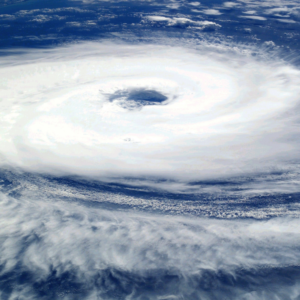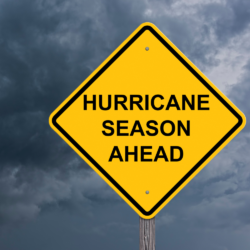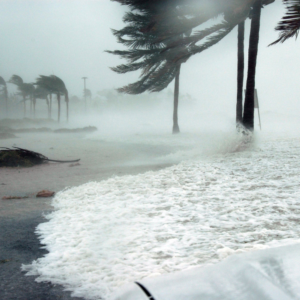As hurricane season approaches, it’s important to be prepared for potential storms. Hurricane season typically runs from June through November in the Atlantic region and from May through November in the Eastern Pacific region. Understanding when hurricane season starts, how long it lasts, and what you can do to protect yourself and your loved ones can help you weather any storm that comes your way.
Understanding Hurricane Season
Hurricane season refers to a specific duration of the year when environmental factors align to create ideal conditions for the development of tropical storms and hurricanes. Throughout this period, multiple factors converge to promote storm formation, making it essential to understand the underlying mechanisms at play.
of tropical storms and hurricanes. Throughout this period, multiple factors converge to promote storm formation, making it essential to understand the underlying mechanisms at play.
One of the most significant factors is the elevated temperature of ocean waters, which typically occurs between late spring and early fall in the Atlantic and Pacific Oceans. Warmer waters facilitate the transfer of heat and moisture from the ocean’s surface to the atmosphere, supplying the energy required for the genesis and intensification of tropical cyclones. Furthermore, the warmer ocean surface also contributes to higher evaporation rates, which fuels the development of these storms.
Another critical component of hurricane season is the wind patterns that prevail during this time. Atmospheric conditions, such as low wind shear and the presence of easterly waves, are conducive to the formation and organization of tropical disturbances. Low wind shear allows for the vertical development of a storm’s structure, while easterly waves provide an initial trigger for storm formation by generating areas of low pressure and encouraging atmospheric circulation.
By comprehending the intricacies of hurricane season, we can better prepare for and mitigate the impacts of these potentially devastating natural disasters.
North Atlantic Hurricane Season
The North Atlantic hurricane season runs from June 1 to November 30, with the peak of the season occurring between August and October. This season covers the Atlantic Ocean, the Caribbean Sea, and the Gulf of Mexico. During this time, hurricanes can form and affect the east coast of the United States, the Caribbean islands, and Central America. States on the eastern coast of the United States are particularly susceptible to hurricanes during this time. However, it is essential to note that the extent and severity of hurricane impacts can vary greatly from year to year and storm to storm.
The following states are typically affected by the North Atlantic Hurricane Season:
- Texas
- Louisiana
- Mississippi
- Alabama
- Florida
- Georgia
- South Carolina
- North Carolina
- Virginia
- Maryland
- Delaware
- New Jersey
- New York
- Connecticut
- Rhode Island
- Massachusetts
- New Hampshire
- Maine
Eastern Pacific Hurricane Season
The Eastern Pacific hurricane season also runs from May 15 to November 30, with the peak of the season occurring between July and September. This season covers the eastern Pacific Ocean, including the waters off the coast of Mexico and Central America. The eastern Pacific hurricane season can affect the west coast of Mexico and the southwestern United States.
The following states are typically affected by the Eastern Pacific Hurricane Season:
- California
- Oregon
- Washington
- Alaska
- Hawaii
It is important to note that Eastern Pacific hurricanes are less likely to make landfall on the U.S. West Coast compared to North Atlantic hurricanes on the East Coast. However, these storms can still impact the West Coast with high surf, coastal erosion, and occasionally heavy rainfall, leading to localized flooding.
Preparing for Hurricane Season
Preparation is key to staying safe during hurricane season. Here are some steps you can take to prepare your home:
- Check for weak spots: Make sure your roof, doors, and windows are secure and can withstand strong winds.
- Prepare a hurricane survival kit: Gather essential supplies such as water, non-perishable food, first aid kit, flashlight, and batteries.
- Create an emergency plan: Decide on a safe place to shelter in place or evacuate, and make sure everyone in your household knows the plan.
You should also take steps to protect yourself and your loved ones:
- Stay informed: Monitor weather updates and warnings from your local authorities.
- Evacuation planning: If you live in an evacuation zone, make sure you have a plan to evacuate quickly and safely.
- Take care of pets: Make sure you have a plan to keep your pets safe during a hurricane.
Surviving a Hurricane
Staying informed during hurricane season is crucial for the safety of individuals and their families. There are several ways to stay informed about weather conditions and potential storms:
- Monitor the weather forecast: Regularly check weather reports and forecasts from trusted sources, such as the National Hurricane Center, to stay informed about any potential storms in your area.
- Sign up for alerts: Many local emergency management agencies offer emergency alert systems that will notify you of any severe weather or emergencies in your area. Sign up for these alerts to stay informed and prepared.
- Have a plan: Develop a plan with your family or household for what to do in the event of a hurricane. Identify safe places to shelter, evacuation routes, and emergency contacts.
- Prepare an emergency kit: Gather essential supplies such as non-perishable food, water, medications, and first aid supplies. Have a kit ready in case of an evacuation or power outage.
- Stay connected: Keep your phone charged and have a backup power source, such as a portable charger or generator. Have a way to communicate with family and friends, such as through text messages or social media.
There are many resources available to help you prepare for hurricane season. The Federal Emergency Management Agency (FEMA) offers a wealth of information on hurricane preparedness, including checklists and guides. You can also contact your local emergency management office for more information on preparing for hurricanes in your area.
Follow evacuation orders: If authorities issue an evacuation order, follow it immediately. Don’t wait until the last minute to evacuate.
Hurricane season can be a dangerous time of the year, but staying informed and prepared can help mitigate the risks. Stay tuned to weather forecasts and alerts, have a plan, and be ready to take action if necessary.
Read our tips on five things you can do in one weekend to prepare for hurricane season: 5 Hurricane Preparedness Tips You Can Complete in One Weekend



